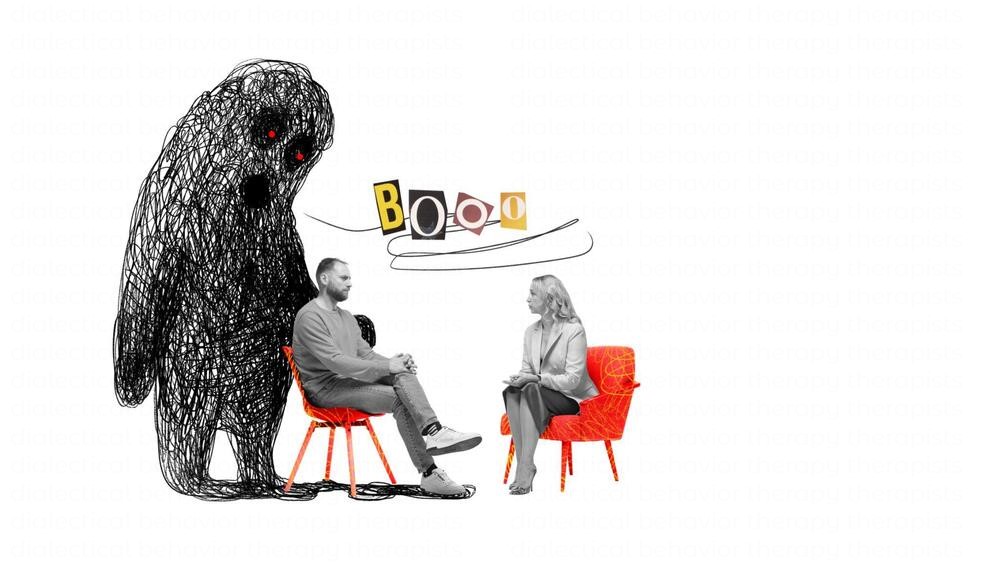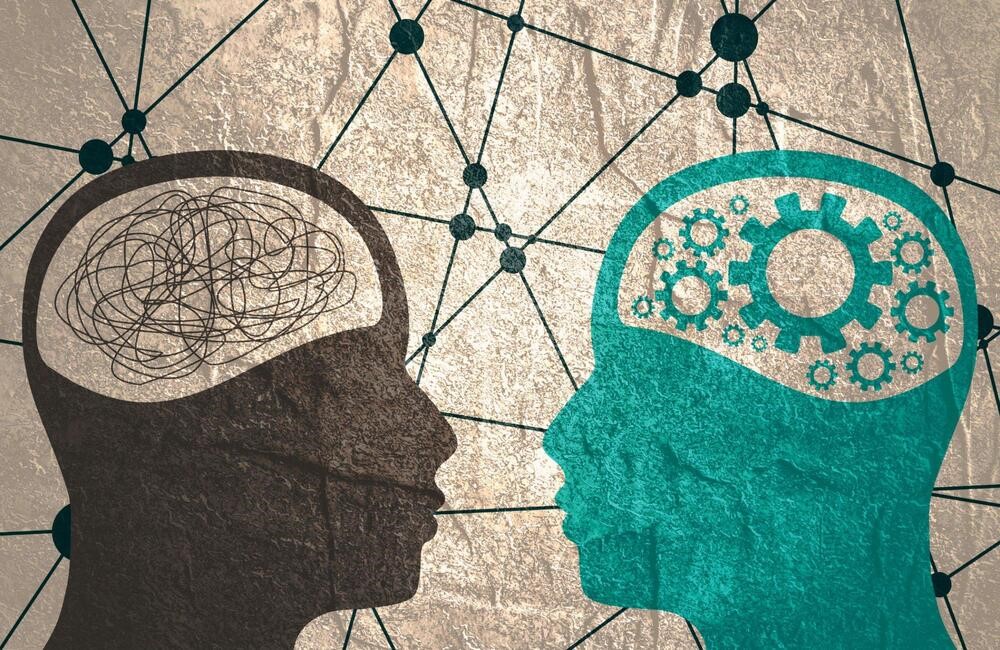Welcome to a guide on therapy for anger issues. If you are looking to better manage your anger, you have come to the right place. In this guide, we will explore how therapy can help you process your emotions and find new ways to cope with and control your anger. We will also discuss different types of therapy that are effective in treating anger and provide tips on how to make the most of your therapy sessions. With the right approach, you can learn how to better manage your anger and live a healthier, happier life. Anger therapy is a type of psychotherapy that focuses on helping individuals better understand and manage their anger. It involves exploring the root causes of anger, learning how to recognize and express anger in healthy ways, and developing strategies for coping with anger in the future. Anger therapy can help people recognize patterns of behavior that lead to angry outbursts or destructive behavior so they can work on changing them. Through this type of therapy, individuals can learn how to manage their relationships more effectively and develop healthier ways of responding to difficult situations.

English.
What is Anger Therapy?
Anger therapy is a type of psychotherapy specifically designed to help individuals learn how to manage their feelings of anger and rage. The goal is to help the individual identify the triggers behind their anger and develop coping strategies that can be implemented in order to better manage their emotions. Anger therapy can be used in both individual and group settings, and often involves cognitive-behavioral techniques, relaxation techniques, and problem-solving skills training.
How Does Anger Therapy Work?
Anger therapy works by helping individuals identify the root cause of their angry outbursts. Through counseling sessions, the therapist will work with the individual to uncover any underlying issues that may be contributing to their anger or rage. Once these issues have been identified, the individual will learn various coping strategies that they can use to manage their feelings in a healthy way. These strategies may include communication skills, relaxation techniques such as deep breathing, problem-solving skills training, and cognitive restructuring techniques such as reframing negative thoughts into positive ones.
In addition to helping the individual understand the causes of their anger and develop healthy coping mechanisms for dealing with it, anger therapy also helps individuals develop effective communication skills so they can express themselves without resorting to aggression or violence. The therapist will work with them on methods for communicating assertively without becoming aggressive or argumentative. This includes learning how to express emotions calmly without becoming angry or hostile.
Anger therapy also teaches individuals how to recognize unhealthy patterns of behavior so they can avoid engaging in them in the future. This includes learning how to recognize triggers for angry outbursts and how to better control one’s impulses when faced with these triggers. With time and practice, these new strategies can become ingrained habits that will help an individual successfully manage their anger in a healthy way for years to come.
What is Anger Therapy?
Anger therapy is a form of psychotherapy that helps individuals to identify and manage their anger. This form of therapy can help individuals improve their relationships, work or school performance, and overall well-being. It can also help individuals to understand the triggers behind their anger and develop healthy ways to manage it.
Types of Anger Therapy
There are several different types of anger therapy available to individuals who struggle with managing their anger. Cognitive Behavioral Therapy (CBT) is a type of therapy that focuses on helping individuals identify and change negative thought patterns and behaviors related to anger. Dialectical Behavioral Therapy (DBT) is another type of therapy that focuses on helping individuals learn new skills for managing emotions, such as mindfulness, interpersonal effectiveness, distress tolerance, and emotion regulation. Psychoeducation is another type of anger therapy which involves teaching individuals about the causes and effects of anger as well as healthy ways to express it.
Cognitive Restructuring
Cognitive restructuring is another type of anger therapy which helps individuals identify irrational thoughts and beliefs that contribute to their feelings of anger. This type of therapy focuses on helping individuals examine how they think about certain situations and replace negative thoughts with more balanced ones. It also teaches coping skills such as relaxation techniques, deep breathing exercises, and problem solving strategies.
Interpersonal Skills Training
Interpersonal skills training is a type of anger management therapy which focuses on helping individuals improve communication skills so they can better handle stressful situations without resorting to aggression or other unhealthy responses. Through this type of counseling, people learn how to express themselves in assertive ways while respecting the feelings and needs of others in the process. They also learn how to recognize potential triggers for angry behavior before it occurs so they can take steps to prevent it from happening in the first place.
Group Therapy
Group therapy for managing anger can be beneficial for those who struggle with identifying or expressing feelings associated with their anger. Group sessions provide a safe environment where people can explore their feelings with others who are experiencing similar issues. Through group activities, members gain insight into each other’s experiences while learning new strategies for managing feelings related to rage or frustration in a productive way.
Mindfulness-Based Therapies
Mindfulness-based therapies are becoming increasingly
The Benefits of Anger Therapy
Anger is a normal emotion that everyone experiences. It can help protect us and motivate us to make changes in our lives. But, when it becomes too intense or happens too often, it can lead to negative consequences such as damaged relationships, physical health problems, and mental health issues. That’s why it’s important to learn how to manage anger in a healthy way. Enter anger therapy – a type of counseling that helps people learn how to better manage their anger and develop healthier coping strategies. Here are some of the benefits of anger therapy:
• Improved Mental Health: Anger therapy can help people identify underlying causes of their anger, such as depression or anxiety. With this insight, they’re better able to address those issues through effective coping strategies which can improve overall mental health.
• Improved Physical Health: Long-term unresolved anger has been linked to higher levels of stress hormones which can contribute to physical ailments such as headaches, high blood pressure and digestive issues. By learning healthy ways of managing their emotions, people are better able to protect themselves from these physical health risks.
• Improved Interpersonal Relationships: Uncontrolled anger can damage our relationships with others at home and at work. In anger therapy, people learn how to communicate more effectively and recognize when they need to take a break or step away from the situation before it escalates into an argument.
• Increased Self-Awareness: Anger therapy helps people gain insight into their triggers and reactions so they can understand why they get angry in certain situations. This self-awareness helps them develop strategies for responding calmly rather than lashing out.
• Increased Productivity: Anger takes up a lot of energy and time that could be put towards more productive activities. By learning how to manage its intensity, individuals are better able to focus on the task at hand without being distracted by overwhelming feelings.
Anger therapy is an effective way for individuals to learn how to manage their emotions in healthy ways. Through this process, they’re able to gain insight into their triggers and reactions while improving their mental and physical health as well as interpersonal relationships. It’s also a great tool for increasing self-awareness and productivity so that individuals can make positive changes in their lives.
Who Can Benefit From Anger Therapy?
Anger therapy can be beneficial for anyone who has difficulty managing their anger. It is an effective way to learn how to recognize and express anger in healthy ways, as well as to provide strategies for preventing and controlling anger-related behaviors. People who may benefit from anger therapy include those who have difficulty controlling their temper, those who feel overwhelmed by their emotions or act impulsively when angry, and those who have been diagnosed with a mental health disorder such as depression or anxiety.
Anger therapy helps individuals identify the root cause of their anger and develop strategies for dealing with it more effectively. It can also help people recognize the signs of escalating anger so they can take steps to manage it before it gets out of control. Through this type of therapy, people learn how to better manage stress and difficult emotions, as well as how to communicate effectively in tense situations.
Anger therapy can also benefit those who have experienced traumatic events such as physical or sexual abuse, or those who have been in an abusive relationship. People in these situations often suffer from post-traumatic stress disorder (PTSD) which can cause intense feelings of guilt, fear, and shame that can lead to outbursts of anger. Through therapy, these individuals can learn how to cope with trauma-related symptoms such as anxiety and depression while developing healthy communication styles that allow them to express their feelings without resorting to aggression or violence.
Children and adolescents may also benefit from anger therapy if they are having difficulty managing their emotions or if they are displaying aggressive behavior towards others. Through counseling sessions, children and adolescents can learn problem-solving skills that will help them better handle conflicts with peers or adults. They can also gain a better understanding of the consequences of their actions when they become angry so they are more likely to make positive choices when faced with challenging situations.
It is important for anyone struggling with anger management issues to seek professional help so they can develop healthier coping strategies that will last a lifetime. With the right kind of support and guidance, individuals can learn how to handle difficult emotions in constructive ways that promote peace and understanding rather than aggression and violence.

What to Expect During Anger Therapy Sessions
Anger therapy sessions are an important part of managing anger. They provide a safe space to explore feelings, learn healthy coping skills, and gain insight into how to better manage anger. During a session, you can expect to talk about your feelings and experiences with the therapist, as well as practice new skills. Here is what to expect during an anger therapy session:
Identifying Triggers: Your therapist will help you identify what triggers your anger and how it affects your behavior. This is important for learning how to recognize when your anger is increasing and taking steps to prevent it from escalating further.
Exploring Feelings: Your therapist will help you explore the underlying emotions that may be causing or contributing to your anger. This can help you better understand yourself and manage difficult emotions more effectively.
Exploring Past Experiences: Anger can often be rooted in past experiences. Your therapist may explore these events with you in order to gain insight into why certain triggers cause more intense reactions than others.
Learning New Skills: Your therapist will also teach you new coping skills that you can use when feeling overwhelmed or frustrated. This could include relaxation techniques, problem-solving strategies, or communication skills.
Creating Action Plans: During each session, your therapist will help you create an action plan for dealing with difficult situations in the future. This plan will include steps for managing your triggers, recognizing when your anger is escalating, and using the tools and strategies discussed in therapy.
Anger therapy sessions can be very beneficial for learning how to better manage intense emotions. It provides a safe space to talk openly about experiences without fear of judgement or criticism. With the help of a qualified therapist, it is possible to learn effective tools and strategies for managing anger more effectively in daily life.
When to Seek Professional Help for Anger Issues
Anger is a normal human emotion, but if it becomes too intense, frequent, or uncontrollable, it can become a problem. If you find yourself unable to control your anger or feelings of frustration, it may be time to seek professional help. Here are some signs that indicate you need help managing your anger:
- You feel like you’re constantly walking on eggshells around certain people.
- You experience physical symptoms such as headaches or tightness in your chest when angry.
- You often say or do things you regret when angry.
- You often feel overwhelmed by your emotions and unable to think rationally.
- You get angry easily and frequently, even over small irritations.
If any of these sound familiar, then it’s probably time to seek professional help. A therapist can provide guidance on how to manage intense emotions and channel them in healthier ways. It’s important to remember that anger is a normal emotion and can be harnessed productively; however, if it starts taking over your life then you need to take action. Learning how to better manage your anger can have a profound effect on both your mental and physical health. A therapist will help you figure out the root cause of your anger so you can address it in healthy ways. Through therapy sessions and other activities like meditation or mindfulness exercises, you will be able to learn strategies for managing your anger more effectively.
It may seem daunting at first but seeking professional help is the first step towards better emotional health. With the right support system in place, you can learn how to recognize triggers that lead to negative feelings as well as develop positive coping skills for dealing with stressors in life. Don’t be afraid to take this important step towards self-care and wellness!
Identifying and Controlling Triggers
Managing anger issues can be challenging. The first step is to identify and control your triggers. Triggers are the things that make you feel angry. It could be a certain phrase or situation, or even an individual. Once you know what makes you angry, you can begin to take steps to control it. This may involve removing yourself from the situation, taking a break, or speaking with someone to help process your feelings. Additionally, it is important to practice relaxation techniques such as deep breathing or meditation to help reduce tension and stress levels.
Develop Healthy Coping Mechanisms
It’s also important to develop healthy coping strategies for when anger does arise. This could include talking it out with a trusted friend or family member, exercising, journaling your thoughts and feelings, or even participating in activities like art or music therapy. All of these activities can help you express your emotions in a healthier way and reduce the intensity of your anger.
Set Boundaries
When dealing with anger management issues, setting boundaries is essential for protecting yourself from further harm and stress. Knowing when to say no and being able to stand up for yourself are important steps in developing healthy relationships with others. If someone is pushing your buttons or making you feel uncomfortable, it’s important to express this clearly and firmly.
Take Time For Self-Care
Taking time for self-care is also an effective way of managing and coping with your anger issues. This could mean setting aside time each day for activities that bring you joy such as reading or going for a walk outdoors. Self-care can also involve getting adequate rest, eating nutritious meals, engaging in leisure activities like yoga or meditation, being mindful of your thoughts and feelings, and practicing gratitude.
Seek Professional Help
If you are struggling with anger management issues despite trying different techniques on your own, it may be helpful to speak with a mental health professional who can offer personalized advice and guidance tailored specifically for you. They can provide valuable insight into how best manage your emotions as well as teach additional strategies for controlling anger more effectively.

In Reflection on Therapy for Anger Issues
Therapy for anger issues is a powerful tool to help people work through their anger and to find healthier, more constructive ways of dealing with it. It can be incredibly beneficial, both in the short-term and long term. It can provide people with the skills and tools they need to manage their emotions in more effective ways and better navigate interpersonal relationships.
In therapy, it is important for clients to be honest and open about their feelings and experiences so that they can gain a better understanding of why they feel anger, how it impacts them, and how they can make changes that will help them better manage their emotions. There are various techniques that can be used in therapy such as cognitive-behavioral therapy, mindfulness practices, talk therapy, meditation, breathing exercises, journaling, stress management techniques, relaxation exercises, etc.
Therapy also provides people with a safe space to talk openly about how they feel without fear of judgment or criticism. It is important for clients to be honest and vulnerable so that they can make progress in addressing their anger issues. Working with a therapist is often an empowering experience as it helps individuals gain insight into themselves and develop healthier coping strategies to address their feelings of anger.
It is also important for people to practice self-care while working through their anger issues. This includes activities like yoga or Tai Chi or taking time for yourself each day by going outside or reading a book or taking a hot bath. Self-care helps individuals become more mindful of their feelings and thoughts which can help them gain better control over them.
Therefore, it is important to remember that everyone deals with anger differently and there is no one-size-fits-all approach when it comes to managing anger issues. What works for one person may not work for another so it’s important to find what works best for you personally as you work through your own struggles with anger management. With patience and dedication, you will eventually find the right approach for you that will enable you to become more in control of your emotions over time.
By committing yourself to therapy for your own personal growth you are taking an important step towards making positive changes in your life which can have long lasting effects on your overall wellbeing. With the right support system in place including both professional help from therapists as well as emotional support from friends and family members you can begin the journey towards a happier life today!




